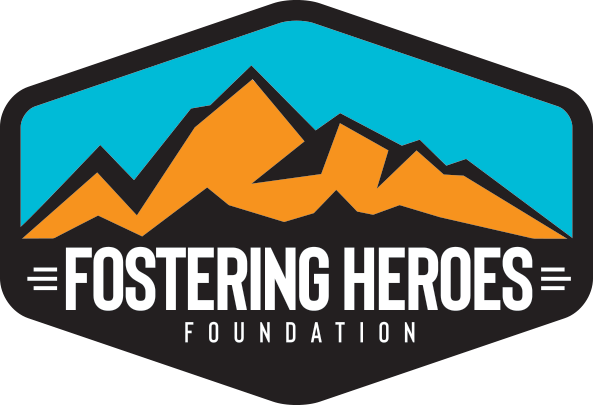By Jason Schuerhoff | Fostering Heroes Foundation 2024 Cowboy Camp Volunteer Leader
For the past four days and nights, I had the privilege and the heartache of volunteering with “Fostering Heroes,” a non-profit organization dedicated to supporting foster kids in group homes who are nearing the age of independence. These young individuals, who are approaching 18 to 20 years old, are on the brink of facing the world alone. This experience profoundly affected me, leaving me feeling a mix of shame, anger, sadness, and determination. I realized how society, myself included, has overlooked this pressing issue.
At the Cowboy camp, we hosted kids from two different group homes, ranging from five to eight or nine children, depending on who was permitted to attend. They arrived midday and departed mid-morning the next day. This annual event was a rare treat for them, a chance to have some fun in a life often devoid of such opportunities.
While the foster group homes and their house managers appear to have noble intentions, a closer look reveals a troubling reality. The federal and state policies have turned these homes into profit centers, with each child potentially bringing in up to $8,000 monthly if the home is properly structured. Sadly, this money rarely translates into better resources for the kids, who often have nothing but oversized clothes, worn-out shoes, and their belongings in black plastic garbage bags.
Despite the flaws in the system, these group homes still offer a better situation than many of the kids’ original family environments, which are often plagued by drugs, sexual abuse, violence, and physical abuse. The stories I heard were heartbreaking. Kids with thousand-yard stares, victims of molestation by family members, children betrayed by their own parents, and others who expressed disturbing wishes as a result of their traumatic experiences. Drugs are a significant factor in most of these children’s placement into foster care.
Statistics show that 40-60% of these kids will end up homeless or in prison. They lack relationships with parental figures, aren’t taught essential life skills, and struggle to hold steady jobs. Considering the horrors they’ve endured, it’s no wonder they face such bleak prospects. Our foundation aims to change that by mentoring these young men and women, helping them gain employment or skills through education and training, and ultimately enabling them to build better lives.
I witnessed kids yearning for attention, love, and care—kids who have been forgotten. Many of them still cherish the very person who placed them in the system, a testament to their deep need for connection.
Homelessness is a pressing issue in every neighborhood, with billions of dollars spent on solutions that often lack measurable success. Meanwhile, over 15,000 children in Arizona alone are at risk of ending up on the streets. By redirecting some of this funding from foreign aid to addressing our domestic issues, we could make a significant impact on preventing homelessness before it begins.
I feel ashamed for not recognizing this problem sooner, angry at the systemic waste, and heartbroken for these children, who are the same age as our own but have faced unimaginable hardships from a young age. I am determined to be a better father and to be a voice for these kids, who are crying out for help in so many ways.
We can do better. I can do better.
